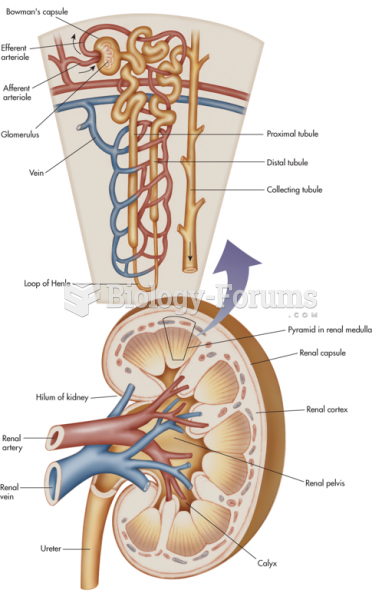|
|
|
Anesthesia awareness is a potentially disturbing adverse effect wherein patients who have been paralyzed with muscle relaxants may awaken. They may be aware of their surroundings but unable to communicate or move. Neurologic monitoring equipment that helps to more closely check the patient's anesthesia stages is now available to avoid the occurrence of anesthesia awareness.
It is important to read food labels and choose foods with low cholesterol and saturated trans fat. You should limit saturated fat to no higher than 6% of daily calories.
The people with the highest levels of LDL are Mexican American males and non-Hispanic black females.
The toxic levels for lithium carbonate are close to the therapeutic levels. Signs of toxicity include fine hand tremor, polyuria, mild thirst, nausea, general discomfort, diarrhea, vomiting, drowsiness, muscular weakness, lack of coordination, ataxia, giddiness, tinnitus, and blurred vision.
Illness; diuretics; laxative abuse; hot weather; exercise; sweating; caffeine; alcoholic beverages; starvation diets; inadequate carbohydrate consumption; and diets high in protein, salt, or fiber can cause people to become dehydrated.
 Negative control of an inducible set of genes: function of the lac repressor in regulating the lac o
Negative control of an inducible set of genes: function of the lac repressor in regulating the lac o
 (a) With few ticks, moose retain a brown coat; (b) at high numbers of ticks, moose self-groom, destr
(a) With few ticks, moose retain a brown coat; (b) at high numbers of ticks, moose self-groom, destr





